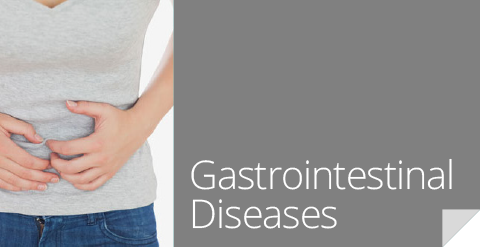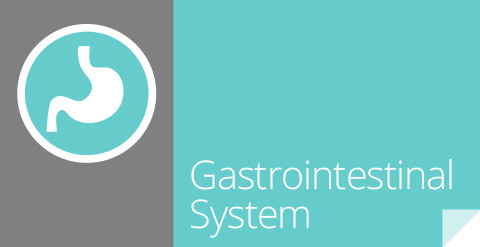Download PDFs or link to information
Low FODMAP DietFermentable Oligosaccharides, Disaccharides, Monosaccharides and Polyols (FODMAPs) are found in the foods we eat. FODMAPs are sugars that are poorly absorbed in the small intestine and reach the large intestine where they produce gas and attract water.
|
Colon polyps
Bowel polyps are small growths on the lining of the bowel wall. They are common, especially as we age. While most bowel polyps do not become cancerous, approximately 5% do. Most polyps can be safely and completely removed during a colonoscopy.
|
Coeliac diseaseCoeliac disease affects approximately 1 in 100 Australians. In coeliac disease the immune system reacts abnormally to gluten. People affected do not absorb food and nutrients well.
|
ConstipationConstipation is one of the most common medical complaints in Australia. People say they are constipated when they can't empty their bowels as often or as easily as they would like to.
|
Diverticular diseaseDiverticular disease is very common. One-third of Australians over 45 years of age, and two-thirds over 85 years have some diverticular disease. Many are unaware they have it. The main cause is not eating enough fibre.
|
Fatty liver diseaseFatty liver disease is an accumulation of fat in the liver. It can lead to serious complications such as cirrhosis. It is one of the most common liver diseases in Australia and a common reason for abnormal liver tests and ultrasound results.
Gallstones
Gallstones are small, hard deposits that form in the gallbladder. They do not produce symptoms in most patients. In cases where symptoms do occur prompt treatment is required.
|
HaemochromatosisHaemochromatosis is the most common form of iron overload disease. Primary or hereditary haemochromatosis is an inherited disease. Secondary haemochromatosis is caused by anaemia, alcoholism and other disorders.
Heartburn and refluxHeartburn (gastroesophageal reflux or indigestion) is very common. Most healthy people experience heartburn from time to time. Antacid is a suitable treatment for healthy people, but severe heartburn requires medical attention.
|
Hepatitis AHepatitis A is one of several different hepatitis viruses that can cause liver infections and damage. Anyone can be infected with hepatitis A if they come in direct contact with food, drinks or objects contaminated by the faeces of an infected person.
|
Hepatitis BHepatitis B is a viral infection that causes liver inflammation and can lead to serious illness or death. A small proportion of people who become infected with the hepatitis B virus develop a long-term or chronic hepatitis B infection.
|
Hepatitis CHepatitis C is a viral infection that causes liver inflammation and can lead to cirrhosis, liver failure or liver cancer. Hepatitis C is thought to be the most common cause of chronic hepatitis and affects about 1% of the Australian community.
Inflammatory Bowel Disease (Crohn's & Colitis)The term inflammatory bowel disease (IBD) covers a group of disorders in which the intestines become inflamed (red and swollen). The major types of IBD are Crohn's disease and ulcerative colitis. Symptoms include pain, diarrhoea and tiredness. IBD is not caused by diet or allergies to certain food components.
|
Iron deficiencyIron deficiency is still the most common nutritional deficiency in Australia, especially among children and women of childbearing age where it can lead to iron-deficiency anaemia, a serious condition where red blood cell production falls.
Inflammatory bowel diseaseThe term inflammatory bowel disease (IBD) covers a group of disorders in which the intestines become inflamed (red and swollen). The major types of IBD are Crohn's disease and ulcerative colitis. Symptoms include pain, diarrhoea and tiredness. IBD is not caused by diet or allergies to certain food components.
|
Irritable bowel syndrome (IBS)Irritable bowel syndrome (IBS) is a common problem affecting the colon or large bowel. Around one in five Australians experiences the unpleasant symptoms of IBS at some time. IBS does not damage the bowel or lead to other health problems.
|
Lactase deficiencyLactose intolerance is the inability to digest lactose. Lactose is a type of sugar found in milk and other dairy products.
|
Helicobacter pylori (H. pylori)Helicobacter pylori (H. pylori) is a bacterium (germ) that lives in the stomach. It causes a chronic low-level inflammation of the stomach lining and is strongly linked to the development of intestinal and gastric ulcers. It is the most wide-spread infection in the world, especially in the developing world.
|
Barrett’s Oesophagus
Barrett's esophagus is a change in the lining of the esophagus caused by chronic acid reflux and can only be detected by upper endoscopy with biopsy.
|
Cancer facts and figures:GI cancers
|
|
Gastroscopy
Colonoscopy EUS ERCP POEM (peroral endoscopic myotomy) Bowel preparation |
|
© Dr Payal Saxena 2015
|
Website by Dalten Media
|





